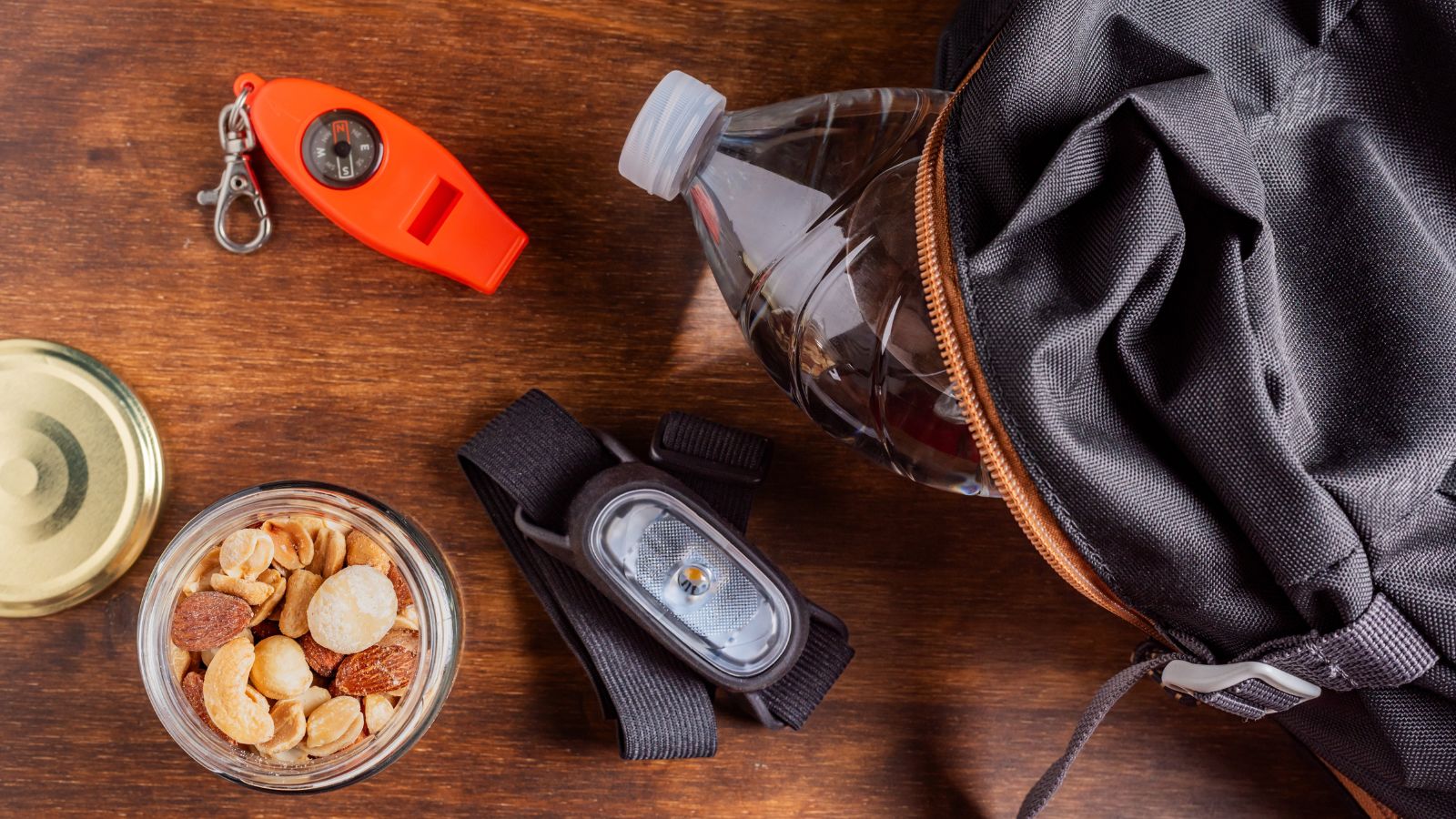Disasters can happen unexpectedly, and being prepared with the right emergency supplies can make all the difference in ensuring your safety and peace of mind. Having a well-thought-out stockpile of essential items can help you navigate challenging situations more smoothly. This guide will help you gather the necessary items to be ready for any potential emergency, providing you with the confidence to handle unforeseen events with greater ease.
Radio

The Red Cross recommends you have a battery powered (with spare batteries) or wind up radio packed in your emergency supplies. You could consider choosing a model that has an alert function to automatically broadcast emergency weather and news alerts for your area.
Emergency Blankets

Emergency thermal blankets are crucial for retaining body heat and staying warm if your heating system fails. They are generally compact and lightweight, making them easy to store, and they can also be used as a makeshift shelter, ground cover, or signaling device in emergencies.
Waterproof Tarps

Tarps can provide shelter from rain, wind, and sun, as well as be used to cover broken windows or damaged roofs temporarily if severe weather has hit. You can also use them to keep your emergency supplies dry if you are forced to venture outdoors.
Multipurpose Tools

A set of basic tools or a universal multi-tool can be invaluable for quick repairs or emergency needs. Consider choosing a Swiss Army knife or a Leatherman tool for a range of functions in one compact design, and make sure you keep them easily accessible.
Personal Hygiene Items

Keep a stock of personal hygiene items like soap, toothpaste, sanitary products, and toilet paper to maintain health and comfort. You should also include hand sanitizer and wet wipes for situations where water is scarce, and make sure you store them in a waterproof container.
Sturdy Footwear and Clothing

Have a pair of sturdy shoes and a set of protective clothing available for each family member to keep you safe if there is fast-moving debris or harsh weather conditions. You should include seasonal clothing, such as warm jackets or rain gear and keep it all in an easily accessible spot in case of an emergency.
Emergency Food Supplies

According to Ready.Gov, you should “stock canned foods, dry mixes and other staples that do not require refrigeration, cooking, water or special preparation. Be sure to include a manual can opener and eating utensils.” Try to ensure that the food supply includes a balance of proteins, carbohydrates, and fats, along with essential vitamins and minerals.
Duct Tape

Duct tape is a versatile tool that can help with quick fixes. It is capable of sealing leaks, repairing broken items, or securing materials together, as well as being a makeshift medical bandage. Keep several rolls in your emergency stocks and ensure they are easily accessible.
Local Maps and Compass

In the event that technology fails, physical maps of your local area and a compass can be essential for navigation. You should mark evacuation routes and important locations, such as hospitals and shelters, on your maps and familiarize yourself with basic compass and map reading skills.
Signal Flares or Whistles

A flare or whistle can be vital for drawing attention if you become trapped or need to signal for help from others. Make sure you read the flare’s instructions to avoid fire hazards, and learn universally recognized distress signals with a whistle.
Spare Batteries and Chargers

Get together a stock of spare batteries for all your essential devices, along with any portable or solar chargers you have. Make sure you regularly check the charge levels of rechargeable batteries and ensure any chargers are compatible with your current phones and devices.
Emergency Water Supply

The Center for Disease Control and Prevention recommends you “store at least 1 gallon of water per person per day for 3 days for drinking and sanitation. Try to store a 2-week supply if possible.” Stored water should be replaced every six months or you can use water purification tablets to maintain freshness and prevent bacterial growth.
Portable Generator

A portable generator could provide you with crucial power during power cuts to keep appliances like refrigerators and heating running. Consider the best fuel type and the wattage you’ll require when selecting the model, and you’ll also need to make sure you have proper ventilation to prevent carbon monoxide poisoning.
First Aid Kit

According to St John Ambulance, a first aid kit should include a selection of sterile wound dressings, plasters, different sizes and types of bandages, disposable gloves, cleansing wipes, adhesive tape, scissors and an aluminum blanket. You should also consider adding specific items like EpiPens or asthma inhalers if family members have particular medical conditions.
Fire Extinguisher

It’s a good idea to choose a multi-purpose extinguisher that is suitable for various fires, including wood, electrical, and flammable liquids. Make sure to place it near the exit of the garage to ensure it is easily accessible during emergencies. You should also check the pressure gauge monthly and replace or service it according to the manufacturer’s instructions.
Torches

Having a stock of multiple high-quality torches or battery-powered lanterns will ensure you have visibility during power outages. Make sure you have a variety of batteries and check their expiration dates regularly. You could also consider having some solar-powered or wind-up torches as a backup.
Safe or Lock Box

Important documents like IDs, insurance policies, and bank information should be stored in a waterproof, fireproof safe or lock box. This box should be in a secure location that is easily accessible so you can quickly grab it in an emergency. Make sure you update it as necessary so that it reflects your current situation.
Gas Shut-Off Tool

A gas shut off tool can prevent fires or gas leaks after a disaster, so it’s important to know how to use it. Make sure you store it in a known, accessible location and ensure all your household members know how to use it.

